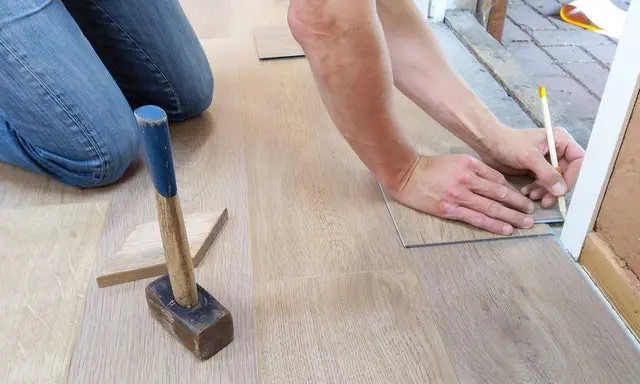
For any aspiring home owners out there, trying to save enough money to put a deposit down on a home can seem impossible. Property prices seem to keep rising over time – especially in the big cities where a lot of younger people are working.
In London the average price of a flat has risen 57% over the past 10 years. But for the same time period workers’ wages have only risen 26%! This means for every year that has gone by it becomes more and more difficult for the first time buyer to catch up.
There is a growing trend emerging for people to buy a home together as friends. But are there any drawbacks to this plan?
How do I buy a home with a friend?
Buying with a friend is actually a very similar process to buying with a partner or a spouse. You will need a joint mortgage.
Everyone on the mortgage will be individually assessed with the lender as part of the application. Although one person might have a stronger financial standing than the other, the lender will want to understand the financial position of each of you. All of the borrowers on the mortgage will be jointly liable for making the repayments.
Ownership
When you apply for a joint mortgage together you will be asked about the structure of the mortgage you want to apply for. There are two main types which have very different characteristic
Joint Tenants or Tenants in Common
A very important feature in buying a home with friends is answering the question of what happens if things don’t work out between you, or if something happens to one of you. This starts to be done formally when you both decide which option to select.
This topic is important in it’s own right and we have a post specifically to address this here.
Why buy with a friend?
Affordability
The main driver why friends are buying with each other comes down to affordability of homes. In major cities in the UK the price of starter homes has seen large increases in the past 10 years.
And while prices have been rising, at the same time salaries have not been able to keep up. This has led to a growing gap that makes it harder for people to afford a home.
Data from the Bank of England shows that the average loan to income ratio (LTI) in 2006 was 3.6x salary. This has since risen to 4.3x by 2020. [Note – if you want to learn more about LTI ratios we have a full post covering it here].
We’ve done some scenarios below to illustrate what two friends might need in different regions of the UK.
At the time of writing the average UK house price was recorded as £250,000 with the average UK flat price of £210,000.
Buying a flat with a friend in the UK
Taking the example of a flat, assuming a 10% deposit is put down (£21,000) the borrower would need to take out a mortgage for £189,000. On a regular salary with a maximum loan to income ratio of 4.5x this requires a salary of £42,000. If the mortgage was with a friend, you would only need a salary of £21,000 each.
Buying a flat with a friend in London
The average price of a London flat is currently £415,000. To make the numbers more rounded assume a deposit of £42,000 is put down. The borrower would need to take out a mortgage for £373,000. On a regular salary with a maximum loan to income ratio of 4.5x this requires a salary of £83,000. If the mortgage was with a friend, you would need a salary of £42,000 each.
Taking the above examples it is easy to see why a lot of people are buying with friends – it means that your borrowing ability gets a massive boost!
It’s important to note that there are other factors assessed when buying a mortgage, including affordability tests that look at your expenses and financial commitments.
Potentially Less Risk
Having a second person buying a home with you can be helpful from a risk perspective if both of you are in employment and receive a salary.
Picture this – you take out a mortgage by yourself and a few months later are made redundant. If you were not able to find another job soon after and exhausted all of your savings, keeping up with the mortgage payments may become very difficult. In the extreme you may have to sell your home to repay the mortgage.
But if two people are both paying off the same mortgage, the damage of one person being temporarily out of work is better managed provided that the other person is able to hold onto their job. One can support the other in times of hardship. This won’t be a permanent solution – friends won’t stay friends for long if one half isn’t paying their share of the mortgage – but it can be less stressful than a scenario where you are the sole mortgage borrower and find yourself out of work and no ability to make the next mortgage payment.
Having Company
Living with a friend can be thought of as an extension of renting with friends. For many there is no need to follow the ‘classic life trajectory’ of having to grow up at a certain age and live off on your own.
Some friends really enjoy living together, despite any differences they have in living habits and priorities.
Is it better to buy a flat or a house with a friend?
The main process for trying to buy a flat together will be similar to buying a house.
Repairs

One aspect we’ve noticed issues with is the topic of paying for ongoing costs after a property is bought. This can be an annoyance for new buyers as their savings have been cleaned out from buying the home.
With a flat, the payment of service charges is not optional. These fees are intended to cover ongoing costs of the building and pay for additional insurance policies. There is a greater chance that with a building issue cropping up in a flat, the cost should be covered by the fees that the flat owner has paid each month in the service charge (although some costs will naturally fall out of this arrangement, such as major building work or unforeseen events).
But with a house the responsibility of maintaining its upkeep falls on the owners. And while this can be good for pro-active owners, for those that might disagree on paying more money out for what they see as ‘optional’ repairs it can mean that repair work gets delayed.
This will come down to your relationship with your friend. If you are buying a home together you should be comfortable enough discussing costs. You should also be comfortable having arguments with your friend because it can never be perfect all of the time!
If you both value having more certainty over how much needs to be paid each month and don’t want as many quibbles about extra costs, a flat may be a better choice.
Cons of buying with friends
Jointly Liable

Being tied in with someone is beneficial in good times but very troubling in bad ones. When you enter into a joint mortgage, the responsibility to make payments rests with both borrowers.
But if one of you can’t keep up with paying your half of the mortgage, the second person will need to make up the shortfall. If the second person cannot afford to do this, you risk falling into arrears on your mortgage. This can ultimately lead to the home being repossessed and will damage your own personal credit file even if you have kept up with paying your share of the mortgage.
It is essential to understand that there is no dividing line saying person 1 and person 2 each owe just 50% of the mortgage repayment. In the eyes of the joint mortgage, you are treated as being together and responsible for the lot.
There may be some options available to you such as deferring repayments, but this will be at the discretion of the lender and is not a good situation to be in.
Ultimately this will come down to the strength of your friendship and the degree that you trust the other person. For some friends, supporting one another when they lost heir job is part of the job description and a normal part of life. For others, they won’t want to lend you any of their money.
Falling Out
No one ever thinks they’ll fall out with their friend until it actually happens. Some friends will be able to ride out the storm and reconcile later. But unfortunately most decide that the living arrangements will need to change.
If you do find that living with your friend/joint borrower becomes unmanageable, one of you may decide that you want to move out. Given that the whole reason for living together came about because of having limited budgets, it’s unlikely that the exiting person will have enough money to continue paying their share of this mortgage plus living expenses somewhere else.
If one person wants to leave the agreement, the ‘stayer’ needs to decide if they want to remain in the property.
Remortgaging
If the ‘stayer’ does want to remain in the property, they will need to buy the leaver’s share of the home (i.e. their equity). In the scenario of having limited funds available to do this, the stayer would need to obtain a larger mortgage from the lender to pay off the leaver’s share.
A lender will perform checks on this option to work out if the stayer can afford a larger mortgage (it will inevitably mean a large repayment each month). The lender will also need to provide consent for this option.
Sale of home
Other friends who have separated find the easiest way to sort things out is to sell the property they are in to pay off the mortgage in full. This can be inconvenient if one person wants to stay, but it can bring closure to a difficult situation.
Negative Equity
Selling the home may be the best option when property prices have risen.
However if you are in a situation where the current market price of your property is lower than the price that you bought it for, you need to consider if the selling price will pay off the mortgage in full. If selling the home is not enough to pay off the mortgage you would be in negative equity.
It is important to seek advice from professionals for these kinds of situations, such as the money advice service.
Are there alternatives to buying with friends?
Some people find that buying their first home with siblings can be a good step up on the ladder. The logic goes that you are less likely to have a major fallout with a sibling than a friend – although that may not turn out to be the case.
There is some support available through government schemes for buying a home like the Help To Buy Equity Loan (read our guide here).
Another option is shared ownership, which allows someone to own a share of a home instead of trying to afford the entire property.
The Government has also announced a plan to build more homes that are specifically discounted to the market price – called ‘First Homes’.
Note:
As with looking at any mortgage products, we strongly recommend getting independent financial advice for your specific situation.
Examples used in this post are fictional with calculations rounded.

